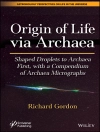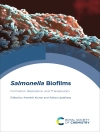Microbial Nanobionics: Volume 1, State of the Art, discusses a wide range of microbial systems and their utilization in biogenic synthesis of metallic nanoparticles.
The rich biodiversity of microbes makes them excellent candidates for potential nanoparticle synthesis biofactories. Through a better understanding of the biochemical and molecular mechanisms of the microbial biosynthesis of metal nanoparticles, the rate of synthesis can be better developed and the monodispersity of the product can be enhanced. The characteristics of nanoparticles can be controlled via optimization of important parameters, such as temperature, p H, concentration and pressure, which regulate microbe growth conditions and cellular and enzymatic activities. Large scale microbial synthesis of nanoparticles is a sustainable method due to the non-hazardous, non-toxic and economical nature of these processes.
The applications of microbial synthesis of nanoparticles are wide and varied, spanning the industrial, biomedical and environmental fields. Biomedical applications include improved and more targeted antimicrobials, biosensing, imaging and drug delivery. In the environmental fields, nanoparticles are used for bioremediation of diverse contaminants, water treatment, catalysis and production of clean energy. With the expected growth of microbial nanotechnology, this volume will serve as a comprehensive and timely reference.
विषयसूची
Preface.- 1. Processing of Nanoparticles by Biomatrices in a Green Approach.- 2. . Green Synthesis/ Biogenic Materials, Characterization and Their Applications.- 3. Biological Synthesis of Nanoparticles by Different Groups of Bacteria.- 4. Mushrooms: New Biofactories for Nanomaterials Production of Different Industrial and Medical Applications.- 5. Actinomycetes: It’s realm in Nanotechnology.- 6. Impact of nanomaterials in Microbial system.- 7. Microbial Production of Nanoparticles: Mechanisms and Applications.- 8. Microbial Nanobionic Engineering: Translational and Transgressive Science of an Antidisciplinary Approximation.- 9. Microbial Nanobionics: Application of Nanobiosensors in Microbial Growth and Diagnostics.- 10. Cancer Bionanotechnology: Biogenic Synthesis of Metallic Nanoparticles and their Pharmaceutical Potency.- 11. Antimicrobial Nanocomposites for Improving Indoor Air Quality.- 12. Microbial Photosynthetic Reaction Centers and Functional Nano Hybrids.- 13. Nanomaterials in Microbial Fuel cells and Related Applications.- Index.
लेखक के बारे में
Ram Prasad, Ph.D. is associated with Amity Institute of Microbial Technology, Amity University, Uttar Pradesh, India since 2005. His research interests include applied microbiology, plant-microbe-interactions, sustainable agriculture and nanobiotechnology. Dr. Prasad has more than hundred publications to his credit, including research papers, review articles, book chapters, five patents issued or pending, and several edited or authored books. Dr. Prasad has twelve years of teaching experience and has been awarded the Young Scientist Award (2007) and Prof. J.S. Datta Munshi Gold Medal (2009) by the International Society for Ecological Communications; FSAB Fellowship (2010) by the Society for Applied Biotechnology; the American Cancer Society UICC International Fellowship for Beginning Investigators, USA (2014); Outstanding Scientist Award (2015) in the field of Microbiology by Venus International Foundation; BRICPL Science Investigator Award (ICAABT-2017) and Research Excellence Award (2018). He serves as an editorial board member for Frontiers in Microbiology, Frontiers in Nutrition, Academia Journal of Biotechnology and is the series editor of the Nanotechnology in the Life Sciences series, Springer Nature, USA. Previously, Dr. Prasad served as Visiting Assistant Professor, Whiting School of Engineering, Department of Mechanical Engineering at Johns Hopkins University, USA and presentlyworks as a Research Associate Professor at School of Environmental Sciences and Engineering, Sun Yat-Sen University, Guangzhou, China.












